Chia seeds, nuts, and flax seeds are high in healthy plant-based fats, while fish is high in healthy fatty acids. Both are good sources of healthy fats for your diet
There are Two Main Sources of Fats
- Vegetarian Fat
- Animal Fat
Vegetarian Sources of Fats
1. Vegetables. Vegetables that contain fats (except for coconuts) are sources of fats. Avocados and olives are two good examples.
2. Vegetable Spreads. Vegetable spreads can be used as substitutes for butter and margarine. Unlike butter, they contain little saturated fat and, unlike margarine, are not made from hydrogenated oils and are therefore free of trans fat. They’re made from vegetable oils, which have some positive health effects.
3. Oils. Olive and canola oils are rich in unsaturated fats. They are excellent substitutes for butter while cooking and add their unique flavor to foods.
4. Nuts. Nuts contain high amounts of monounsaturated fats, which have been shown to protect against cardiovascular disease. Nuts can be used as great snacks, which will help you get to your next meal without eating junk foods such as potato chips or doughnuts. Peanut butter also contains healthy fats.
5. Algae Oil. Algae oil is often referred to as vegan omega or algae DHA. This is because, unlike most vegetable-based oils, algae contains the best levels of DHA and EPA essential fatty acids. Algae also doesn’t contain the potentially fewer desirable fats contained in some vegetable oils.
It is the closest fat to omega-3 fish oil but is derived from marine algae. Marine algae are where fish derive their omega-3 oils from. This makes Algae oil the perfect oil for vegans.
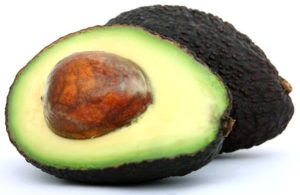

Animal Sources of Fats
1. Animal Fat extracted from animals such as sheep, cows, camel … and others.
2. Fish. It is rich in unsaturated fats and contains omega-3 heart-healthy fatty acids. Fish is an excellent substitute for meats such as beef and pork, high in unhealthy saturated fats.
Understanding the Types of Fats in Your Diet?
Fat is a crucial factor when you are on a diet; without it, we can not function properly. You must take this into account when you are contemplating a diet. We need to know their health benefits and health hazards, and we need to know the amounts we should consume in our daily diet. We must know which types should be eaten and from which Sources Of Fats.
Fats Can be Divided into 4 Types
- Saturated fat
- Monounsaturated fat
- Polyunsaturated fat
- Trans Fats
What is Saturated Fat?
Saturated fats are fats that are mainly of animal origin. Coconut oil is the exception as it is of plant origin. Their molecular structure means they are solid at room temperature but soften in heat.
Saturated fats are not generally recommended for health as they have been implicated in contributing to cardiovascular disease. There are differing thoughts about the health risks associated with saturated fats, and many find coconut oil, for example, offers many health benefits.
Sources of Saturated Fats
- Cheese
- Meat fat and meat products
- Lard
- Coconut oil
- Full cream milk
- Hard margarine
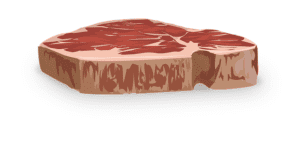

What is Monounsaturated Fat?
Monounsaturated fats are generally associated with being beneficial for health. They may have a positive effect on cholesterol levels.
Sources of Monounsaturated Fats
- Avocados
- Fats from nuts( almonds, cashews, macadamias, pistachios, and peanuts)
- Olive oil
What is Polyunsaturated Fat?
Polyunsaturated fats are considered the most healthy fats for your body. These include omega-3 fish oil and omega-6 vegetable oils.
Omega 3 oils are known to have an anti-inflammatory response in the body and may benefit cardiovascular disease.
These omega-6 oils can be great for the skin and help with hormone balance.
Sources of Omega 3 include
- Oily fish
- Flax seeds
- Chia Seeds
- Sacha Inchi oil ( a South American plant high in omega 3)
- Walnuts
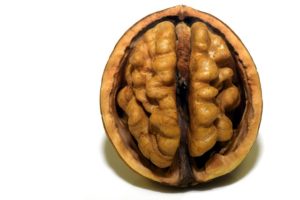

What are Trans Fats?
Trans Fats come in both natural and artificial forms. Ruminant trans fats occur in small amounts in meat and dairy products like milk. These trans fats are produced in the gut of some animals.
Artificial Trans Fats (or trans fatty acids) are fats formed by the process of adding hydrogen to liquid vegetable oils to make them more solid.
These partially hydrogenated oils are not beneficial for your heart health and should only be consumed in small amounts.
Sources of Trans Fatty acids include
- Baked Foods
- Some margarine
- Biscuits.
- Fried foods like Doughnuts
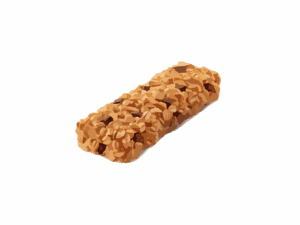

Sources of Fats Beneficial to Our Health
Latest research shows that healthy fats are necessary and can be beneficial to our health.
Best Fats for Brain Health
The Majority of the human brain is made up of fat and requires good levels of dietary fat to remain healthy
The best fats for the brain are omega-3 fatty acids and phospholipids.
Omega 6 fatty acids are also crucial for brain health, but only in small amounts.
Omega-3 fatty acids are found primarily in fish, and phospholipids are mainly found in foods such as lecithin, egg yolk, and soy products.
To get the most therapeutic effects, from both the Omega 3 and phospholipids they are gained by supplementation.
Phospholipids can be a hard fat to absorb from the diet compared to other fats.
A double-blind study of 149 elderly patients tested the efficacy of 100mg of phosphatidylserine ( one of the phospholipids) taken 3 x daily. All participants had age-associated memory impairment. The parameters tested were name-face acquisition, name-face delayed recall, and facial recognition
After three weeks, there was a significant improvement in all parameters compared to placebo.
Best Fats for Heart Health
Eating more unsaturated fats, both monosaturated and polyunsaturated, can be beneficial to your heart health.
Latest research has found eating unsaturated fats like omega-3 and omega-6 can help reduce the risk of heart disease and strokes.
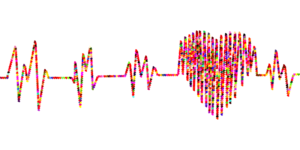

Eating more unsaturated fats, both monosaturated and polyunsaturated, can be beneficial to your heart health. Latest research has found eating unsaturated fats like omega-3, and omega-6 can help reduce the risk of heart disease and strokes.
Cholesterol is a fatty substance mainly produced in our livers. Too many saturated fats in your diet can elevate your blood’s harmful LDL cholesterol levels.
“Good” HDL cholesterol, however, positively affects the body. It takes cholesterol from the parts of the body where there’s too much and disposes of it in the liver.
Monounsaturated fats are rich in antioxidants and can reduce your risk of heart disease.
Polyunsaturated fats are excellent sources of omega-3 and omega-6 fatty acids. These contain anti-inflammatory properties, which can reduce the levels of harmful HDL cholesterol.
Knowing the different types of fats and the best sources of fats can help you make better food choices for healthy nutrition and healthy living
